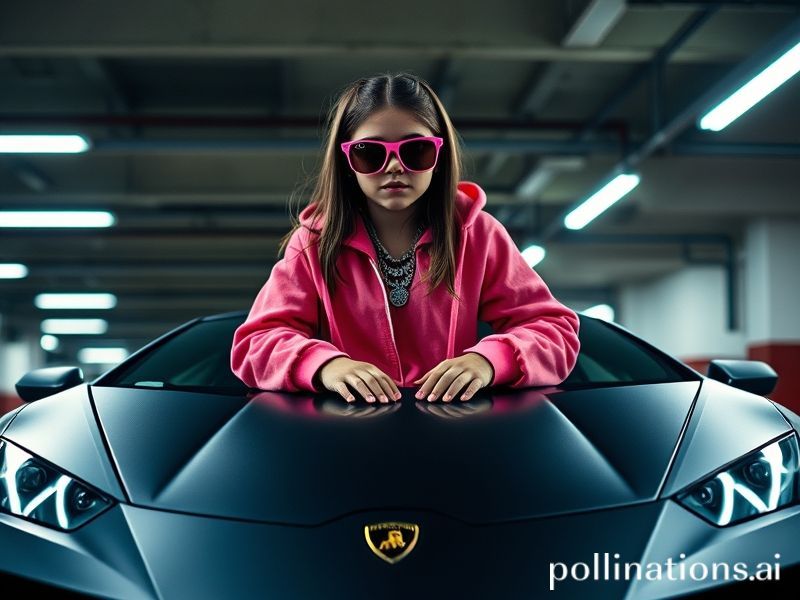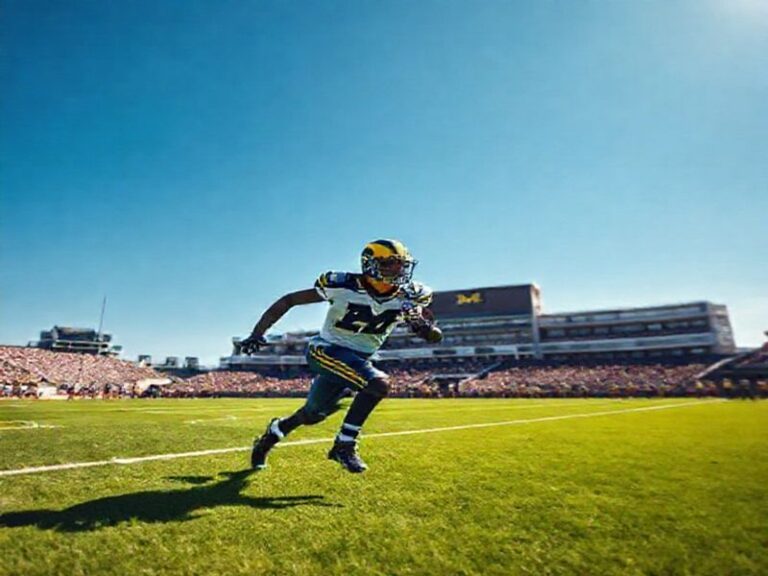Lil Tay Rises Again: How a Nine-Year-Old Meme Became a Global Soft-Power Crisis
Lil Tay, the nine-year-old “flexer” who once bragged about owning a Lamborghini she could neither legally drive nor spell, has returned from a five-year digital exile like a pop-culture Lazarus—except the stone has been rolled away by marketing consultants instead of angels. From Jakarta to Johannesburg, the announcement that the child influencer is “back and better than ever” landed with the same hushed awe normally reserved for a papal conclave or a new iOS update. The world, it seems, has been holding its breath for a tween who once screamed “I got racks on racks, bish!” while standing on a rented Ferrari in a Vancouver parking lot.
The international significance of this resurrection is not that a minor has re-entered the meme economy; it’s that everyone—regardless of passport—understood the assignment. Within minutes of her re-appearance, Arabic Twitter debated whether her stacks of cash violated Sharia law, German tabloids calculated the carbon footprint of her private-jet emoji, and Japanese fan artists already shipped her with Hatsune Miku. The planet has become one giant writers’ room for a reality show none of us auditioned for, and Lil Tay is both star and show-runner.
The mechanics of her return are textbook late-stage capitalism: a carefully teased obituary (later revealed to be a hack), a mournful Instagram montage scored by a Ukrainian lo-fi producer, and a merch drop timed to coincide with the moment collective amnesia kicked in. PR firms on three continents traded high-fives over Slack, having successfully weaponized the death of a child persona that never really existed in the first place. Somewhere in London, a McKinsey analyst billed $1,200 an hour to model the “grief-to-engagement conversion funnel.” The numbers, presumably, were excellent.
Of course, the global south watches this spectacle with a familiar cocktail of envy and schadenfreude. In Lagos, where the daily minimum wage is roughly two Lil Tay hoodies, teenagers stream her comeback video on cracked iPhones, dreaming of the day their own hustle culture can be monetized into a Balenciaga sponsorship. Meanwhile, Indian content farms are already cloning her aesthetic—substituting rupees for dollars and sacred cows for sports cars—proving once again that American soft power is most potent when it’s completely unhinged.
Diplomats, ever attuned to the currents of soft influence, have taken note. During a recent ASEAN summit, a Singaporean delegate reportedly asked whether “Lil Tay” could be classified as a non-tariff barrier to youth attention spans. The French, protective of their language, are debating if “flex” should be admitted into the Académie Française lexicon, possibly next to “le clickbait.” In Moscow, state television used her comeback as proof that Western decadence has entered its baroque phase, conveniently ignoring the Kremlin’s own cadre of oligarch offspring who post champagne baths on yachts named after Kant.
The broader significance is almost too depressing to articulate, so let’s outsource it to a Swiss think-tank white paper: “The re-commodification of Lil Tay illustrates the global normalization of precocious hyper-capitalism, whereby childhood itself becomes a tradeable asset class.” Translation: we are now short-selling adolescence on the open market. If you listen closely, you can hear hedge-fund quants in Greenwich packaging her future brand deals into derivative swaps called “Tay-Tranches.” Moody’s is reportedly assigning them a BBB+ rating—stable outlook, contingent on no homework scandals.
And yet, for all the cynicism, Lil Tay’s saga offers a perverse kind of planetary unity. From Seoul to São Paulo, we all know the dance: girl shouts, internet erupts, brands salivate, analysts monetize, parents panic, and the rest of us doom-scroll into the abyss. It’s a ritual as old as 2018—which, in internet years, is practically Mesopotamia.
So welcome back, Lil Tay. The world has spent half a decade growing older, poorer, and only marginally wiser, but your brand is evergreen. May your stacks stay crisp, your rented cars stay polished, and your inevitable burnout be livestreamed in 8K. After all, if we’re going to watch civilization decline, it might as well have a trap beat.







